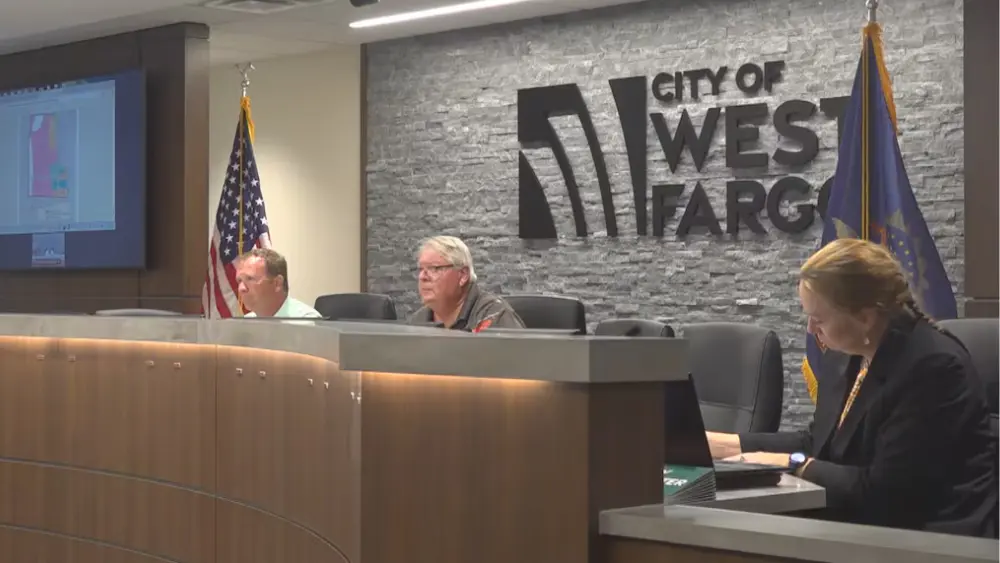(PIERRE) – Seven ballot questions will appear on the November general election ballot for South Dakota voters. Absentee voting began last Friday in the state. Here’s a look at each of the topics being covered in the ballot questions:
Constitutional Amendment: Certain Officeholders and Persons
Voters will be asked to approve changes to the South Dakota State Constitution to ‘remove the use of generic male pronouns when referring to certain officeholders or individuals.’ One example is that, when referencing the state’s Governor, instead of saying ‘he shall be commander-in-chief,’ the text will say ‘the Governor shall be commander-in-chief.’
Constitutional Amendment: Work Requirement for individuals eligible for expanded Medicaid benefits
Voters will be asked to approve the authorization of the State ‘to impose work requirements on any person eligible to receive benefits under the expanded Medicaid program.’ The requirement will not be in place for persons who are physically or mentally disabled. The work requirement must be approved by the federal government before implementation.
Voter Initiated Measure: Grocery Tax
Voters will be asked whether or not they approve a measure that bans the state from taxing the sale of anything sold for human consumption.’ The ban would exclude alcoholic beverages or prepared foods, and would allow municipalities to continue to impose these taxes.
Voter Initiated Measure: Right to Abortion in State Constitution
If passed, this initiated measure would establish a constitutional right to an abortion, as well as providing legal framework for the regulation of abortion. During the first trimester, a woman’s decision to obtain an abortion ‘may not be regulated nor may regulations be imposed on the carrying out of an abortion.’ The measure further says regulation of a pregnant woman’s abortion decision and carrying out of an abortion would be allowed in the second trimester, as well as the third. An exception in the third is in a case where the abortion ‘is necessary to preserve the life or health of the pregnant woman.’
Voter Initiated Measure: Open Primaries
If passed, the amendment would require one primary election ‘wherein all candidates run against each other in their respective races.’ The two top candidates would advance to the general election; and if there is more than one candidate to be elected, the number advancing would be twice the number to be elected. Currently, to appear on the general ballot, major party candidates for certain offices must participate in a partisan primary election.
Voter Initiated Measure: Recreational Marijuana
If passed, individuals 21 or older in South Dakota would be allowed to possess, grow, ingest and distribute marijuana and marijuana paraphernalia. They may possess up to two ounces in a form other than concentrate or other marijuana projects, and up to six plants with no more than 12 plants per household. A limit on the possession of other forms of marijuana and marijuana products will also be in place. The possession, ingestion and distribution of marijuana and marijuana paraphernalia would remain illegal for those under 21. A restriction would also be placed on where individuals may possess or consume the marijuana, and employers would be able to restrict an employee’s use of marijuana, as well as property owners.
Legislature Referred Measure: Surcharge on Certain Pipeline Companies, Establishment of Landowner Bill of Rights
If passed, this measure would authorize counties to impose a one dollar per foot surcharge on carbon dioxide pipelines, with the revenues to be distributed as tax relief to property owners in the county in which the line is installed. Any remaining revenue would be allocated at the county’s discretion, and no other fees may be imposed, except for property taxes or fees associated with road agreements. Also, if passed, requirements would be placed on carbon dioxide pipelines, such as a minimum depth for installation, pipeline operator responsibilities and the requirement that easements be in writing and enforceable for a specified period of time. The pipeline operators must start business operations with five years of the easement, and each easement is void after five years of nonuse.





